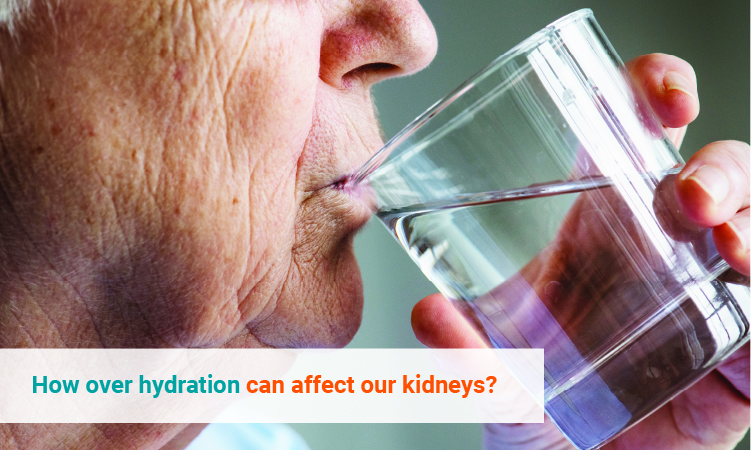can smoking affect kidneys Smoking kidneys affect
Smoking and our kidneys - two seemingly unrelated topics, right? Well, you might be surprised to learn that smoking can actually have a significant impact on the health of our kidneys. So, if you’re a smoker or know someone who is, this article is a must-read!
How does smoking affect our kidneys?
Firstly, let’s talk about the harmful chemicals present in cigarettes. When we smoke, these toxic substances are introduced into our bloodstream. Over time, these chemicals can damage our blood vessels, including those in our kidneys. In fact, smoking is known to be a major risk factor for kidney disease.
Research suggests that smoking can directly harm the kidneys and accelerate the progression of kidney disease. It can lead to a decrease in kidney function, increase the risk of developing kidney cancer, and worsen existing kidney conditions. The harmful effects of smoking on the kidneys cannot be overstated.
 So, what can you do to protect your kidneys? The answer is simple: quit smoking! By quitting smoking, you can significantly reduce the risk of kidney damage. Your body has an amazing ability to heal itself, and your kidneys will benefit from the cessation of smoking.
So, what can you do to protect your kidneys? The answer is simple: quit smoking! By quitting smoking, you can significantly reduce the risk of kidney damage. Your body has an amazing ability to heal itself, and your kidneys will benefit from the cessation of smoking.
Additionally, by quitting smoking, you’ll also reduce your risk of developing other smoking-related health problems, such as heart disease, lung cancer, and stroke. It’s a win-win situation for your overall health!
Overhydration and its impact on our kidneys
Now, let’s shift our focus to another important aspect of kidney health - hydration. While it’s essential to stay properly hydrated, overhydration can also have negative consequences, including on our kidneys.
Our kidneys play a crucial role in maintaining the balance of fluids in our body. When we consume excessive amounts of water, it puts unnecessary strain on these vital organs. Over time, this strain can weaken the kidneys and lead to various complications.
 One of the conditions associated with overhydration is hyponatremia, which is characterized by low sodium levels in the blood. This electrolyte imbalance puts additional stress on the kidneys and can lead to kidney damage if not addressed promptly.
One of the conditions associated with overhydration is hyponatremia, which is characterized by low sodium levels in the blood. This electrolyte imbalance puts additional stress on the kidneys and can lead to kidney damage if not addressed promptly.
To maintain optimal kidney health, it is important to strike a balance when it comes to hydration. Listen to your body’s thirst signals and drink when you genuinely feel the need for fluids. Be cautious of excessive water intake, especially during intense physical activities or when not in a state of genuine thirst.
Remember, our kidneys are vital organs that deserve our care and attention. By avoiding smoking and practicing responsible hydration, we can protect our kidneys and promote better overall health. Make the conscious choice today to prioritize your kidney health!
If you are searching about It’s not just your Lungs!…Smoking damages your Kidneys too! | All you’ve visit to the right page. We have 5 Pics about It’s not just your Lungs!…Smoking damages your Kidneys too! | All like It’s not just your Lungs!…Smoking damages your Kidneys too! | All, One More Reason to Quit: Smoking May Damage Your Kidneys | HealthAhead and also How Over Hydration Can Affect Kidneys? - Apollo Dialysis. Read more:
It’s Not Just Your Lungs!…Smoking Damages Your Kidneys Too! | All
 www.allthingskidney.comsmoking kidneys kidney damage cigarette
www.allthingskidney.comsmoking kidneys kidney damage cigarette
How Over Hydration Can Affect Kidneys? - Apollo Dialysis
 www.apollodialysis.comhydration kidneys
www.apollodialysis.comhydration kidneys
How Quitting Smoking Affects Each Body System (Explained)
www.respiratorytherapyzone.comsmoking kidneys affect
Does Smoking Affect Your Kidneys? | KHC
 khccares.comOne More Reason To Quit: Smoking May Damage Your Kidneys | HealthAhead
khccares.comOne More Reason To Quit: Smoking May Damage Your Kidneys | HealthAhead
.jpg) www.ge-healthahead.comsmoking kidneys damage quit reason habit damages lungs organ nearly every does than body
Smoking kidneys affect. It’s not just your lungs!…smoking damages your kidneys too!. How over hydration can affect kidneys?